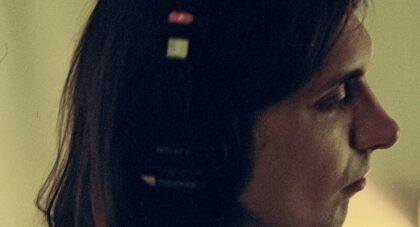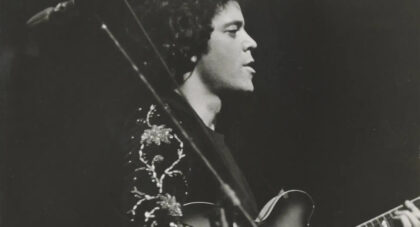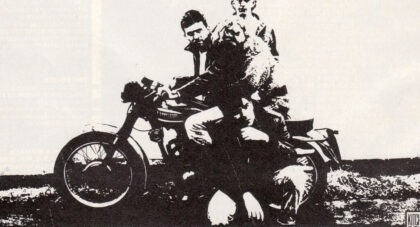The poetry of Allen Ginsberg was a foundational influence on the counter culture, informing folk, rock & roll, and punk, establishing a vocabulary that was as profane and fearless as it was beautiful and transcendent. But while his contributions to the discographies of Bob Dylan and the Clash are well documented, his own musical explorations have been less publicized. With the recent release of Omnivore Recordings' The Last Word on First Blues, a three-disc set featuring material recorded in 1971, 1976, and 1981, producer Pat Thomas has gone a long way toward illuminating this singing side of Ginsberg.
Featuring contributions from Dylan, avant-garde cellist Arthur Russell, an appearance by Don Cherry on kazoo, David Mansfield, Steven Taylor, Peter Orlovsky, and many more, the sessions presented here are wild, loose, and celebratory. The recordings encompass far out country, gospel sweetness, jug band reveries, swinging jazz, and blues, effectively presenting a template for future freak folk weirdness, playing in sandboxes similar to those of his friends the Fugs and Holy Modal Rounders. Certainly, Ginsberg's voice takes some getting used to, but once you're acclimated it's easy to hear its versatility, capable of warm softness on songs like "Gospel Nobel Truths" or free rapping on material like "Jimmy Berman (Gay Lib Rag)."
We reached out the Thomas to discuss assembling the collection, talking about Ginsberg's voice, his role in Dylan's Rolling Thunder Revue, and his assorted celebrations of pure freedom.
Aquarium Drunkard: In the notes, you talk about hearing about Ginsberg's First Blues on MTV News, obviously released many years after the sessions were recorded. What was your first impression listening to the record?
Pat Thomas: I really was blown away, I immediately connected with it, in retrospect, surprisingly so -- I didn't need any "warm up" time to Ginsberg's vocals or lyrics -- and it quickly become something I played a lot! As much as any Beatles or Clash or whatever albums.
AD: After the initial 1971 sessions, there was talk of Apple Records releasing the material. Any insight as to why that didn't happen? Seems like Allen's stuff would have fit in well with Lennon and Yoko's vibe, alongside people like David Peel.
Pat Thomas: I think mainly it didn't get released on Apple because Apple was falling apart. The Beatles had of course broken up, they were fighting in with each other and with their "manager" Allen Klein. I mean, Lennon could have "pushed it out," but didn't for whatever reason. But yeah, it would have fit in nicely with the David Peel LP for sure...
Only the good shit. Aquarium Drunkard is powered by its patrons. Keep the servers humming and help us continue doing it by pledging your support.
To continue reading, become a member or log in.


